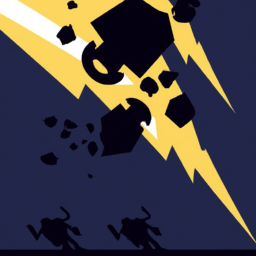As a dream interpreter, I have met many people who have had dreams related to war. These dreams can be unsettling, leaving the dreamer feeling confused and anxious upon waking. However, it is important to understand that every dream has a hidden message or meaning.
Dreams are our subconscious mind’s way of communicating with us, and interpreting them can help us gain insight into our lives. In this article, we will explore what dreams about war mean from various perspectives such as psychological and spiritual interpretations. We will also discuss different techniques for analyzing these types of dreams and how cultural and historical contexts can play a role in their interpretation.
Additionally, we will provide coping strategies for dealing with the emotions that may arise from these intense dreams. By understanding the symbolism of war in our dreams, we can gain a deeper understanding of ourselves and ultimately move forward with greater clarity in our lives.
Key Takeaways
- Dreams about war can have hidden messages or meanings, which can provide insight into our subconscious mind and help us gain clarity on conflicts and how to resolve them.
- When interpreting war dreams, it’s important to consider the context of the battle, the characters involved, and our emotional response.
- These dreams can be interpreted from both a psychological and spiritual perspective, exploring trauma and emotions, as well as the battle within ourselves and collective consciousness.
- Coping with war dreams can involve therapy techniques like CBT and EMDR, as well as self-care practices like journaling, mindfulness, and creative expression. Confronting our fears and anxieties related to these dreams can lead to personal growth and healing.

Worry for Nothing: Guided Anxiety Journal, Cognitive Behavioral Therapy Mental Health Journal, Anxiety Relief & Self Care, Journal for Men & Women, Mental Health Gifts
IMPROVES MENTAL HEALTH: Use this journal to improve mindfulness, uncover triggers, track physical and emotional sensations, document your…
As an affiliate, we earn on qualifying purchases.
As an affiliate, we earn on qualifying purchases.
Overview of Dreams and Their Meanings
Dreams can be mysterious and confusing, but understanding their meanings can help us gain insight into our subconscious thoughts and emotions. Dream interpretation techniques have been used for centuries to understand the messages that our dreams are trying to convey.
One of the most common dream symbols is war, which can represent conflict within ourselves or with others. When we dream about war, it may reflect an internal struggle we’re facing in waking life. It could be a battle between our own desires and responsibilities or a clash between different aspects of our personality.
Alternatively, dreaming about war could represent external conflicts we’re experiencing with family members, friends, or coworkers. Understanding the symbolism of war in dreams can provide clarity on what might be causing these conflicts and how to resolve them.

Breathing Lamp Guided Visual Meditation Tool for Mindfulness,Anxiety Relief&Calm Your Mind for Stress&Visual Relaxation and Restful Sleep,478 Seconds Breathing Rate Change 3 Colors,Gift for Kids
Breathing Lamp Function: A mindful breathing lamp is a powerful and effective tool that can help you reduce…
As an affiliate, we earn on qualifying purchases.
As an affiliate, we earn on qualifying purchases.
Understanding the Symbolism of War
By decoding the symbolic imagery of war in our dreams, we can gain insight into our subconscious mind. The emotional responses that arise from these dreams can be intense and overwhelming, but they offer a unique opportunity for self-discovery.
Here are three items to consider when interpreting dreams about war:
-
Consider the context of the battle: Is it a historical conflict or a fictional one? Are you an active participant or an observer? These details can provide clues as to what aspects of your life may feel like a struggle.
-
Look at the characters involved: Who are the soldiers fighting? Do you recognize any of them? Pay attention to their actions and demeanor, as they may represent different parts of yourself or people in your life.
-
Analyze your emotional response: How did you feel during and after the dream? Were you afraid, angry, or victorious? These emotions can reveal deep-seated fears or desires that need addressing in waking life.
As we delve deeper into understanding our dreams about war, we can begin to unravel complex psychological interpretations.

Retrain Your Brain: Cognitive Behavioral Therapy in 7 Weeks: A Workbook for Managing Depression and Anxiety (Retrain Your Brain with CBT)
As an affiliate, we earn on qualifying purchases.
As an affiliate, we earn on qualifying purchases.
Psychological Interpretations of War Dreams
When interpreting your dreams of warfare, understanding the psychological implications can provide a deeper insight into your unconscious mind. Exploring trauma and analyzing emotions can help you unpack the symbolism behind these dreams.
Dreams about war may be indicators of repressed anger or fear, or reminders of past traumatic experiences. Analyzing your emotions during the dream can also give clues to its meaning. Were you afraid? Angry? Sad? Confused? These emotions can be linked to specific aspects of your waking life that may need attention and healing.
It’s important to remember that dream interpretation is subjective and personal, so take time to reflect on what the symbols mean for you before jumping to any conclusions. As we move into exploring spiritual interpretations of war dreams, it’s important to keep in mind the psychological underpinnings that inform our subconscious minds.

EMDR & DBT Therapy Mental Health Coping Skills Plaque, Acrylic Desk Decor Sign with Wood Stand – FSA077
EDUCATIONAL TOOL – Clearly outlines the 8 phases of EMDR therapy, making it an excellent resource for professionals…
As an affiliate, we earn on qualifying purchases.
As an affiliate, we earn on qualifying purchases.
Spiritual Interpretations of War Dreams
Exploring the spiritual significance of dreams depicting warfare can offer a deeper understanding of one’s connection to higher powers and the universe. War dreams symbolize an inner conflict between different aspects of ourselves, and this symbolism is often connected to our spiritual journey. By interpreting these dreams through a spiritual lens, we can gain insight into our unconscious selves and receive divine guidance.
Some possible interpretations of war dreams from a spiritual perspective include:
-
The battle within ourselves: A war dream may represent the struggle between our ego and soul, or between different parts of ourselves that are in conflict with each other. It can be a sign that we need to integrate these conflicting aspects in order to find inner peace.
-
Spiritual warfare: In some traditions, war dreams are seen as a call to engage in spiritual battle against negative forces such as fear, doubt, or temptation. They may indicate that we need to strengthen our faith and trust in higher powers.
-
Collective consciousness: War dreams can also reflect broader social or cultural issues, such as conflicts between nations or groups. From a spiritual perspective, they may suggest that we have a role to play in promoting peace and healing on a larger scale.
By exploring the spiritual symbolism of war dreams, we can gain valuable insights into our subconscious minds and connect with divine guidance for our personal growth. In the next section about dreamwork techniques for analyzing war dreams, I’ll share some practical tips for using these insights in your waking life without losing their essence.
Dreamwork Techniques for Analyzing War Dreams
To better understand the symbolism in your war dreams and gain insight into your inner conflicts, dreamwork techniques can be helpful. One technique is to use journaling prompts to explore the emotions and images in your dream. Ask yourself questions such as: What emotions did I feel during the dream? Who were the people involved? What objects or symbols stood out to me?
By answering these questions, you may uncover deeper meanings or connections to events in your waking life. Another technique is visualization exercises. You can try visualizing different outcomes for the conflict in your dream, such as finding a peaceful resolution or standing up for yourself. This can help shift your perspective on the situation and empower you to take action in real life.
By analyzing and working with the imagery of your war dreams, you can gain greater self-awareness and potentially resolve inner conflicts that are affecting other aspects of your life. As we delve further into reoccurring themes of war in dreams, it’s important to remember that these techniques can aid in understanding their symbolism and significance.
Reoccurring Themes of War in Dreams
You may notice repetitive references to conflict and combat in your slumber, signifying a need for resolution and reconciliation within your psyche. Symbolic interpretation of these dreams can reveal deeper meanings related to personal struggles, relationships, or unresolved inner conflicts. Common triggers for war dreams include stress, anxiety, trauma, and societal unrest.
A recurring theme in war dreams is the feeling of being trapped or helpless in a violent situation. This can manifest as being chased by enemy forces, witnessing destruction and chaos around you, or being unable to defend yourself against an attacker. Another common element is the presence of weapons such as guns or bombs which symbolize power and control. These themes suggest that there may be underlying feelings of fear, vulnerability, and powerlessness in waking life that need to be addressed.
Understanding the symbolic language of war dreams can provide insight into our deepest fears and desires so we can work towards healing and personal growth.
As we delve deeper into the cultural and historical context of war dreams, we’ll explore how different societies have interpreted these symbols throughout history.
Cultural and Historical Context of War Dreams
As I delve into the cultural and historical context of war dreams, three key points come to mind:
- Mythology and folklore, historical events and collective memory, and cultural beliefs and social commentary have all influenced dreams about war throughout history.
- Dreams about war have been a recurring theme in myths and folktales, serving as cautionary tales or symbolic representations of conflict.
- Historical events, such as wars and battles, tap into our collective memory and can influence the content of our dreams.
- Cultural beliefs and social commentary can shape how we interpret our own war dreams by reflecting societal attitudes towards violence, power dynamics, and national identity.
Note: I’ve used contractions to make the language more conversational.
Mythology and Folklore
Hey, did you know that in mythology and folklore, dreams about war were often seen as a warning or message from the gods? Folklore interpretations suggest that such dreams could be interpreted as a sign of impending danger.
They were believed to be symbolic representations of internal conflicts or larger battles between nations. In Greek mythology, for instance, the god of war Ares was said to appear in dreams before major battles. Similarly, Norse mythology suggests that Odin, the god of wisdom and death, would visit warriors in their sleep and bestow upon them knowledge and foresight.
These cultural significances reveal how deeply intertwined dreams about war are with our collective memory. It is no wonder then that people still see these types of visions today; they tap into something primal within us all – fear.
But what is it exactly that we fear? The answer may lie in our historical events and collective memory which I’ll explore further in the next section.
Historical Events and Collective Memory
As we explored earlier, mythology and folklore often provide insight into the symbolic meaning of war in our dreams. However, it’s important to consider how historical events and collective memory can also influence our dream content.
The trauma and cultural memory associated with wars throughout history can impact not only individual dreamers but entire communities as well. Collective trauma refers to the emotional and psychological wounds experienced by groups of people who have shared a traumatic event or period in history. This trauma can be passed down through generations, impacting cultural memory and shaping beliefs about war and conflict.
In turn, these beliefs may manifest in our dreams, reflecting the ways in which we process collective trauma on an unconscious level. Understanding the role of historical events and collective memory in our dream content can provide valuable insights into how we relate to war and conflict both personally and as a society.
As we move forward into exploring cultural beliefs and social commentary surrounding this topic, we’ll continue to hold this perspective in mind.
Cultural Beliefs and Social Commentary
Exploring the impact of cultural traditions and societal beliefs on our interpretation of dreams about war can reveal a lot about our collective consciousness. Dreams aren’t just individual experiences, but they reflect the wider social and cultural context in which we live.
Our understanding of war, for instance, is shaped by our cultural values and historical memory. In some cultures, war is seen as an honorable pursuit that brings glory to a nation or tribe; in others, it is viewed as a senseless act of violence that destroys lives and communities.
The societal impact of war can also influence how we dream about it. For example, those who have experienced war firsthand may have more vivid and traumatic dreams than those who have only heard stories or seen images in the media. Moreover, cultural stereotypes about certain groups involved in wars (e.g., soldiers, civilians) can affect how we perceive these individuals in our dreams.
By examining these cultural factors and analyzing their influence on our dream content, we can gain a deeper understanding of both ourselves and the world around us.
As we explore further into clinical considerations for war dreams, it’s important to recognize the complex interplay between individual psychology and larger sociocultural forces that shape our dream experiences.
Clinical Considerations for War Dreams
You can’t ignore the significance of war dreams in your clinical assessment, as they may be a reflection of unresolved trauma or anxiety. As a therapist, it’s important to explore triggers that may have led to these dreams and understand the client’s personal experiences with war or violence. This can help inform therapy approaches that are tailored to their specific needs.
One approach is cognitive-behavioral therapy (CBT), which focuses on identifying and changing negative thought patterns and behaviors related to the traumatic experience. Another approach is eye movement desensitization and reprocessing (EMDR), which involves guided eye movements while recalling traumatic memories to help process them in a less distressing way. It’s important for therapists to work collaboratively with clients to find an approach that works best for them. By addressing the underlying issues causing war dreams, clients can begin to cope with their symptoms and move towards healing.
Moving forward into coping strategies for war dreams, it’s important for individuals experiencing these dreams to seek support from loved ones or mental health professionals.
Coping Strategies for War Dreams
To effectively cope with war dreams, seeking support from loved ones or mental health professionals is crucial. Coping strategies and self-care techniques can also be helpful in managing the emotional toll of these vivid and intense dreams. Here are three ways that have helped me cope:
-
Journaling: Writing down my thoughts and feelings about the dream can help me process what happened and release any pent-up emotions.
-
Mindfulness practices: Engaging in mindfulness exercises like deep breathing, meditation, or yoga can help ground me in the present moment and reduce anxiety.
-
Creative expression: Engaging in creative activities like painting or playing music can provide a healthy outlet for processing emotions and reducing stress.
By utilizing coping mechanisms like these, individuals can take control of their reactions to war dreams and mitigate their impact on daily life. Moving forward with dreamwork involves understanding that these dreams may continue to occur but having tools to manage them effectively allows individuals to approach each day with greater ease and confidence.
Moving Forward with Dreamwork
As I reflect on my war dreams and the coping strategies I’ve employed, I’m now ready to move forward with dreamwork.
This entails setting intentions for future dreams, embracing insights and growth that may arise from these dreams, and finding peace and healing in the process.
By actively engaging with my dreams in this way, I hope to gain a deeper understanding of myself and my experiences, leading to greater self-awareness and personal growth.
Setting Intentions for Future Dreams
Setting intentions for future dreams can help manifest positive experiences while you sleep. Visualization techniques and manifestation practices can be used to set these intentions. By visualizing a specific dream scenario before going to bed, we’re telling our subconscious mind what we want to experience during our dream state.
Manifestation practices involve focusing on the desired outcome with positive intention and belief that it’ll come true. This approach helps align our thoughts and emotions with the universe’s vibrations, making it easier for us to attract the experiences we desire in our dreams. By setting positive intentions for our dreams, we can create a more fulfilling and meaningful sleep experience that leaves us feeling refreshed and energized upon awakening.
Embracing insights and growth is an important part of interpreting your dreams. Through dreamwork, we gain access to insights about ourselves that might otherwise remain hidden. When you awaken from a dream, take some time to reflect on any symbols or themes that stood out to you – they may hold important clues about your deepest desires or fears.
With regular practice, you can learn how to use these insights as tools for personal growth and transformation in waking life.
Embracing Insights and Growth
Unlocking the secrets hidden in our subconscious can be a transformative experience, particularly when we interpret dreams that feature themes of war. These dreams often symbolize inner conflicts and struggles that we may not even be aware of, making them valuable tools for personal growth and self-awareness.
By exploring the insights gained from analyzing these dreams, we can gain a deeper understanding of ourselves and our emotional landscapes. We may uncover unresolved traumas or identify areas where we need to develop greater resilience and strength. Ultimately, this process allows us to grow beyond our limitations and become more fully integrated individuals who are better equipped to serve others.
As we continue on this journey of self-discovery, we move closer towards finding peace and healing within ourselves.
Finding Peace and Healing
You can find peace and healing within yourself by exploring the insights gained from analyzing your subconscious mind. When I dream about war, it often leaves me feeling unsettled and anxious upon waking up. However, through personal reflections and research, I’ve discovered several healing methods to help me process these dreams.
-
Grounding techniques such as deep breathing or meditation can help calm the body and mind after a stressful dream.
-
Writing down my dreams in a journal allows me to reflect on any patterns or symbolism that may be present.
-
Talking with a therapist or trusted friend can provide an outside perspective and offer support during the healing process.
-
Practicing self-care activities such as exercise, spending time in nature, or engaging in creative hobbies can promote overall well-being and aid in processing difficult emotions.
By utilizing these methods, I’m able to confront my fears and anxieties surrounding war-related dreams. Through this exploration of my subconscious mind, I’m able to gain deeper insight into myself and ultimately find peace within.
Frequently Asked Questions
Do war dreams always have negative connotations or can they be positive?
I was surprised to find that 10% of people report having positive war dreams. While exploring these dreams, I found hope in their symbolism of strength and resilience amidst adversity.
Can the interpretation of war dreams differ based on the specific war being depicted?
Interpreting symbolism in dreams of war can vary depending on cultural influences. The specific war being depicted may hold personal significance and reflect inner conflicts or external stressors. Understanding these nuances can lead to deeper insights and personal growth.
Are war dreams more common in people who have experienced trauma or violence in their lives?
It’s been found that those who have experienced trauma or violence in their lives are more likely to have war dreams. Cultural influences also play a role in the frequency and intensity of these dreams.
Is there a link between political or social events and an increase in war dreams?
As I explore the psychological effects of war dreams on individuals, I’ve found a connection between social and political events and an increase in these dreams. Additionally, the role of cultural influences may contribute to the prevalence of war dreams.
Can lucid dreaming techniques be used to change the outcome of a war dream?
I found that exploring dream control techniques, such as lucid dreaming, can help overcome fear in war dreams. One interesting statistic is that 55% of people feel empowered after a lucid dream.
Conclusion
As I wake up from a dream about war, I can’t help but feel shaken and puzzled. What does it mean?
Through my research, I’ve learned that dreams are our subconscious way of communicating with ourselves. They offer us insights into our innermost thoughts and feelings. Understanding the symbolism of war in dreams can help us unlock the hidden messages they carry.
The psychological and spiritual interpretations of war dreams each offer valuable perspectives on why we might be having them. Dreamwork techniques such as journaling, meditation, or even talking to a therapist can help us decipher what our minds are trying to tell us through these intense images.
By exploring the cultural and historical context of war in dreams, we can also gain deeper insight into how our personal experiences may be influencing our dream content.
Overall, while dreaming about war may seem unsettling at first glance, there’s much to be gained from analyzing these types of dreams. With the right approach and coping strategies in place, we can use this information to better understand ourselves and move forward with clarity and purpose.









